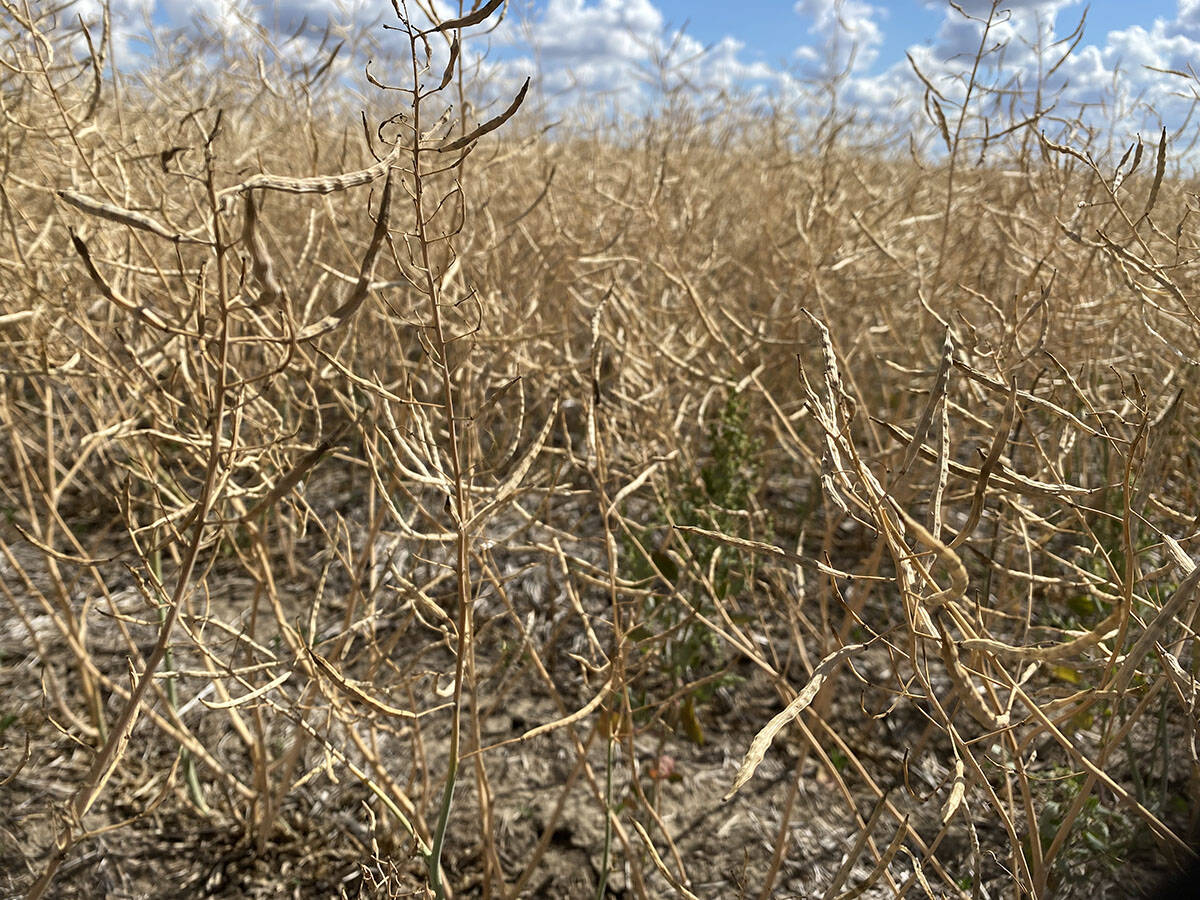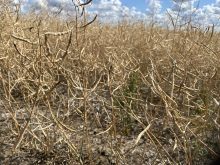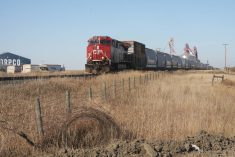A tribute and last goodbye to a true friend and neighbor, Mr. Randolph Russell of the Glaslyn farming district northwest Sask. He was an avid reader of The Western Producer and Western People. He passed away quietly at his farm at the age of 87 years Dec. 24.
Mr. Russell was a true citizen. When he said “I say,” that was all that was needed – a man of his word. Our politicians could have learned something from him. He was a longtime breeder of good Horned Hereford cattle for many years and could be seen up to last fall putting 10 to 12 hour days on the combine or tractor doing summerfallow. Mr. Russell had a great love of the soil and nature. He loved to laugh and tell stories of the days gone by.
Read Also

Crop insurance’s ability to help producers has its limitations
Farmers enrolled in crop insurance can do just as well financially when they have a horrible crop or no crop at all, compared to when they have a below average crop
A true man and tiller of the land. Sadly missed.
– Rene Cadrain,
Glaslyn, Sask.
Prairie centre
A Regina-based private club, namely the Prairie Centre for Agriculture, circulates weekly articles of anti Canadian Wheat Board rhetoric to numerous, maybe hundreds, of western Canadian newspapers. Many weekly newspapers publish the commentaries, primarily because the Prairie Centre commentaries are free and most weekly newspapers do not have the resources to fill the pages themselves.
The thrust of the articles written by Craig Docksteader … (are) obviously a deliberate attempt to discredit and undermine the credibility of the Board. Docksteader’s latest article states that the Wheat Board could survive as a voluntary entity.
The term voluntary (dual) marketing is a misnomer because it implies having both the option of marketing through the wheat board and the option of selling to a grain trader of one’s choice. Privately owned grain companies and grain traders have a vested interest in buying grains at the lowest possible price and selling these grains at the highest possible price to enhance their bottom line.
The whole idea behind the CWB and why it was created in the first place was that if many thousands of farmers co-operatively banded together pooling their grain and marketing it through a single desk, this would give producers immense market power. There is no doubt that the Board’s strength is its monopoly. It gives farmers some clout in a world market dominated and controlled by huge international grain companies. The existence of one seller in any one market creates higher prices than numerous sellers into the same market. Breaking the Board’s monopoly flies in the face of economics itself.
At present, the grain companies own and operate the entire elevator network. In Docksteader’s proposal, the companies would be in direct competition to the Canadian Wheat Board. The grain companies would insure their commercial customers receive the best available product and have first choice at the available transportation. This would place the CWB in a very weak bargaining position and therefore the Board would be the marketer of last resort, or residual marketer. The Prairie Centre is a private club, therefore it is impossible to access information about it. It does not have a democratic structure. It is not a producer-driven organization. The financial records are not public.
The CWB has a 15-member board, 10 of them are elected farmers, who act in the best interests of producers. Each year the board produces an audited financial statement. Yet, Docksteader continues to rant about the lack of democracy and accountability at the CWB.
Who is calling the kettle black?
Who is funding the Prairie Centre propaganda machine?
Who has the most to gain from the CWB demise?
Private grain companies?
The Winnipeg Commodity Exchange?
The railroads?
In whom should producers place their trust?
– Fred Harrison,
Melville, Sask.















